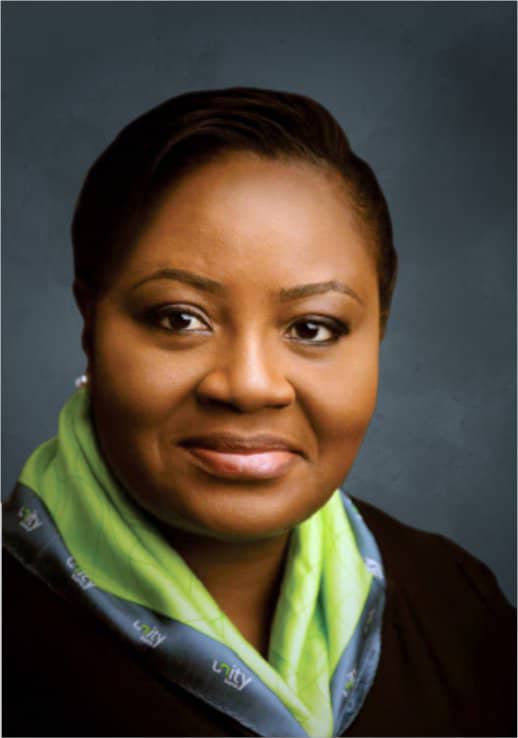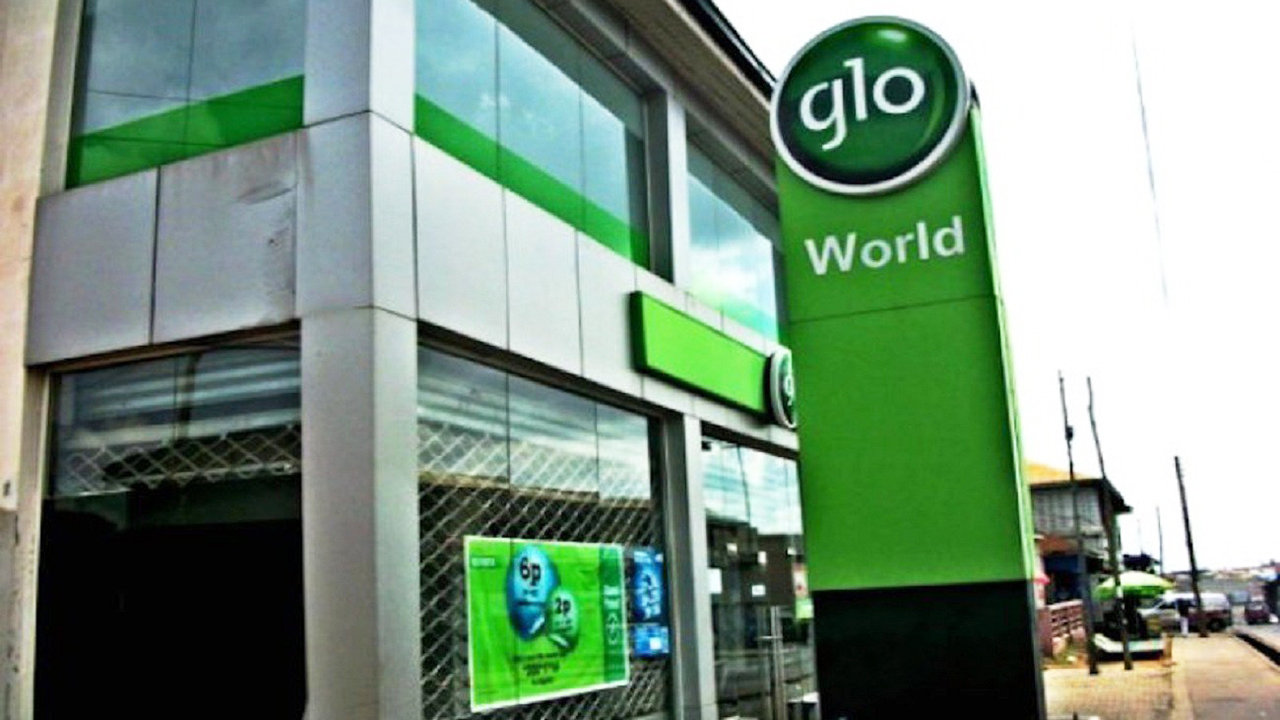Business
Unity Bank Grows 34% Pre-tax Profit, Records N23B Gross Earnings in H1 2021

Nigeria’s retail lender, Unity Bank Plc has declared half-year result posting gross earnings of 23.6 billion Naira, which is a 3% increase compared with the corresponding period of 2020.
A review of the unaudited half year result (H1’2021) released to the Nigerian Stock Exchange, the Agric-focused lender showed notable improvement across key financial matrices. The Bank grew bottom-line by 34% as Profit before Tax (PBT) moved up significantly in positive territory to close at N1.50 billion from N1.12 billion recorded in H2 2020.
Similarly, the Profit After Tax, PAT closed at N1.38 billion within the period under review from N1.03 billion recorded in the corresponding period of 2020, a sign of a stronger recovery in the overall economy and the Bank’s key focus market segment after a disruptive pandemic year.
A major highlight of the result is the growth in the Bank’s loan book, which saw a 22% increase to N246.90 billion within the period compared to N202.08 billion recorded in H2 2020.
The lender also sustained growth trajectory in its assets as total assets for the period rose by 11% to N547.37 billion from N492.02 billion as of December 31, 2020.
Other highlights of the financial statement include a 21% jump in fee and commission income to N3.07 billion from N2.54 billion in the corresponding period of 2020; and N9.87 billion upticks in net interest incomes, representing a 9% increase from the N9.06 billion recorded in the corresponding period of 2020.
Interest and similar income also rose though recording a marginal 2% growth to close at N20.27 billion compared to the N19.79 billion recorded in half-year 2020. Earnings per share rose by 3 kobo to close at 11.82 Kobo within the period compared to 8.82 Kobo recorded in the corresponding period of 2020.
The financial report also contained the details of the three months to June 2021 (Q2 2021) report showed that the Bank recorded a 17% leap in gross income to N12.32 billion from N10.50 billion recorded in the corresponding quarter of 2020.
Pre-tax profit for the period closed at N718.0 million, a 31% increased from N546.35 million recorded in Q2 2020, while Profit After Tax equally closed at N660.57 million from N502.65 million recorded in the corresponding review period.
Commenting on the result, the Managing Director/CEO, Unity Bank Plc, Mrs. Tomi Somefun noted encouraging trends in key performance indicators driving the numbers reported in the H1 result, in that the Bank is beginning to reflect greater consistency, steady outlook and resilience that places it on a performance pedestal ahead of the volatilities in the operating environment occasioned partly by the prevailing global pandemic and other market shocks that have far-reaching implications in the local and foreign economies.
The double digits growth recorded in both earnings and profits, she further added, was the result of a portfolio plan which the Bank set out in the beginning of the year to diversify its portfolio whilst incrementally pursuing asset creation in petrochemical downstream, consumer, healthcare and general commerce with agribusiness providing the bulwark for identified business and brand benefits.
She stated that the Bank will be looking to strengthen its balance sheet from the liability side as it continues to grow its brand franchise in many areas of the retail market by promoting and leveraging its Agriculture value chain businesses as an offshoot to achieve better performance ratios that enable it expand the scope of business for even greater outcome.
Analysts share the optimism on the growth trajectory achieved on the back of contributions from diverse portfolio investments which is a radical departure from the past.
Business
FirstBank Partners Verve to Issue Free Debit Cards in Nationwide Promo

First Bank of Nigeria Limited (FirstBank), Nigeria’s premier and leading financial inclusion services provider, has announced the launch of the Verve Flash Promo, a special initiative rewarding customers with free Verve cards.
The campaign, which commenced on 6 October 2025, and will run until 30 January 2026, is exclusively targeted at FirstBank customers whose ATM cards have expired.
The free cards will be issued daily to 131 customers on a first-come, first-served basis across the Bank’s branches, nationwide. FirstBank’s unwavering commitment to convenience, accessibility, and customer satisfaction.
Speaking on the rewards to FirstBank customers, Chuma Ezirim, the Group Executive, e-Business and Retail Products at FirstBank, said: “The Verve Flash Promo is not just about rewarding customers with free verve debit cards; it is about celebrating our legacy of 131 years of trust, resilience, and innovation in the Nigerian financial services industry. At FirstBank, we remain committed to providing customer-centric solutions that enable secure, seamless, and convenient payment experiences. Partnering with Verve International on these initiatives, including the Verve Good Life promo, underscores our shared vision of deepening financial inclusion while rewarding our loyal customers for their continuous patronage.”
Also commenting, Vincent Ogbunude, Managing Director, Verve International, noted:
“Through strategic collaborations like this with FirstBank, we continue to demonstrate Verve’s commitment to enhancing access to seamless payment solutions for every Nigerian. The Verve Flash Promo not only rewards loyal customers but also reinforces our vision of making everyday transactions more rewarding, secure, and convenient. As we extend the Good Life Promo, we remain steadfast in our goal of deepening financial inclusion while delivering real value to Verve cardholders across the country.”
Meanwhile, the ongoing Verve Good Life promo, designed to reward Verve debit card holders for using their cards at specific merchant points, has been extended to 30 November 2025.
During the period, Verve Card holders enjoy 10% cashback at The Place Restaurant, Quickteller, Buypower, Filmhouse, AlliExpress, Addide Supermarkets, and Chowdeck app every Thursday to Sunday.
Verve cardholders can now enjoy a 10% cashback on the Google Play Store any day of the week throughout the Good Life Promo, which runs until 30 November 2025. Moreso, every transaction made with a Verve card whether on ATMs, POS terminals, or online platforms automatically earns customers a chance to win up to ₦1,000,000.
Business
Glo Enhances Data Bundles, Offers More Data at No Extra Cost

Nigeria’s leading telecommunications company, Globacom, has announced enhancement of its data bundles to give subscribers more data volume at the same affordable prices.
The upgrade reinforces the company’s commitment to providing superior value and exceptional customer satisfaction.
The upgraded Glo Data Bundles are enhanced versions of the existing daily, weekly, and monthly plans, giving subscribers more data at no additional cost.
These improvements offer users greater freedom and convenience to enjoy their favourite online activities from streaming and gaming to social media, video calls, and more.
For daily users, the ₦100 plan has been upgraded from 105MB to 125MB, giving light internet users even more data to browse, chat, and stream short videos conveniently.
The weekly bundles have also received notable boosts, such as the ₦1,500 plan, which now offers 6GB instead of 5.9GB, enabling subscribers to stay connected longer.
Heavy data consumers will also enjoy remarkable value on the monthly plans. The ₦2,000 bundle now gives 6.25GB, while the ₦10,000 package has been enhanced from 38GB to 42GB, allowing users to do more from video streaming and large file downloads to remote work and virtual meetings.
Students are not left out, as the Campus Booster Plan has been upgraded with higher data allowances, ensuring seamless access to academic resources and social networks while on campus.
Globacom noted that the revised bundles are available to all Glo customers prepaid, postpaid, and hybrid and can be activated by dialing *312#, using the Glo Café app (available on Android and iOS), or visiting hsi.glo.com.
The company added that subscribers can use, share, or gift data through *312# or the Glo Café app. Customers will also continue to receive data usage alerts at 75% and 100% consumption levels to help monitor usage effectively.
Unused data is automatically rolled over upon renewal before expiry or when a new plan is purchased within the grace period (ranging from one to seven days, depending on the plan).
Globacom reaffirmed its commitment to empowering Nigerians with reliable and affordable data access, urging customers to take advantage of the revised data bundles that combine affordability, quality, and more browsing power ensuring every Glo subscriber enjoys more data without paying more.
Business
Maiden Flight to Heathrow Airport: Fidelity Bank Hails Air Peace

Fidelity Bank Plc has congratulated Air Peace on the successful launch of its maiden direct flight from Lagos to London Heathrow, describing the milestone as a significant achievement for Nigeria’s aviation sector and a testament to the power of indigenous partnerships.
The commendation was delivered by Dr. Nneka Onyeali-Ikpe, managing director of Fidelity Bank, during a special event held in Lagos to celebrate the airline’s expansion into the European market.
“This is not just a win for Air Peace, but a win for Nigeria,” Onyeali-Ikpe said. “It reflects the strength of home-grown businesses and the impact of strategic financial support in enabling national champions to thrive on the global stage.”
Nigeria CommunicationsWeek reports that Fidelity Bank has played a pivotal role in Air Peace’s growth, providing early financial backing and advisory services that helped the airline become the largest carrier in West Africa. The bank continues to support Air Peace through payment processing and other financial services
The launch of the London route marks a new chapter for Air Peace, which now joins a select group of African airlines operating direct flights to Heathrow.
The development is expected to boost tourism, trade, and connectivity between Nigeria and the United Kingdom.
Speaking at the event, Allen Onyema, Chairman of Air Peace, expressed gratitude to Fidelity Bank for its unwavering support and reaffirmed the airline’s commitment to excellence and service.
“This partnership has been instrumental in our journey,” Onyema said. “We are proud to fly the Nigerian flag across international skies.”
Industry stakeholders present at the event praised the collaboration between the two companies as a model for sustainable business growth and national development.






